Rafizi Ramli shares his biggest concern: Malaysians’ risk aversion & success model
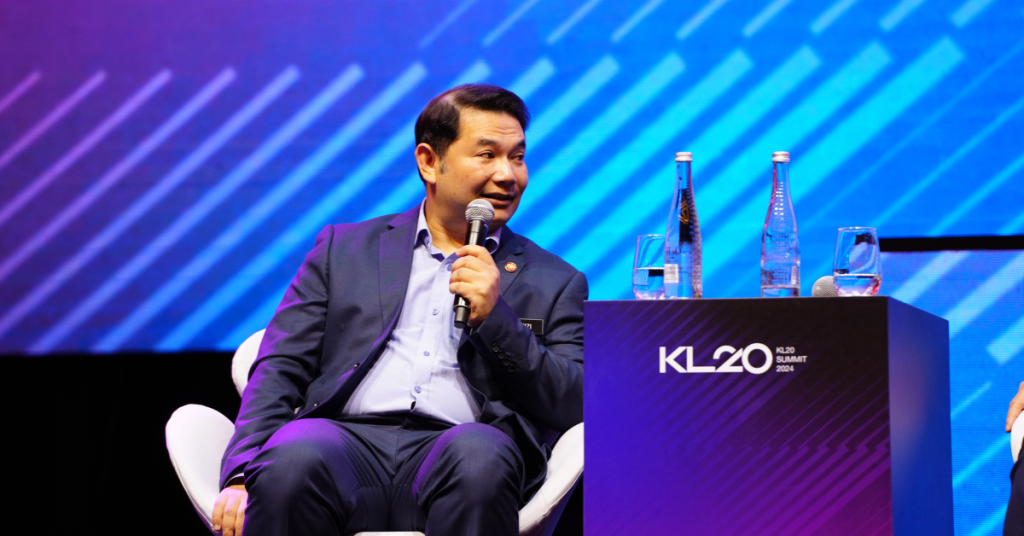
If you were to ask top Malaysian students what their career goal is, what do you think their answer would be?
Our Minister of Economy, Rafizi Ramli, believes that many of these highly trained Malaysians would want a nice, stable job at a big corporation.
“And that presents a problem to the country especially as we are pushing for higher value type of economic activities, especially in startups and tech, where it is extremely, extremely risky,” he pointed out.
He shared this on the first day of the KL20 Summit 2024 during a panel titled “From Malaysia to the World: Open for Tech Business”. He shared the stage with Dato Amirul Feisal (Managing Director of Khazanah), MX Kuok (Managing Partner of K3 Ventures), and Datuk Hajah Nik Amlizan Mohamed (CEO of KWAP).
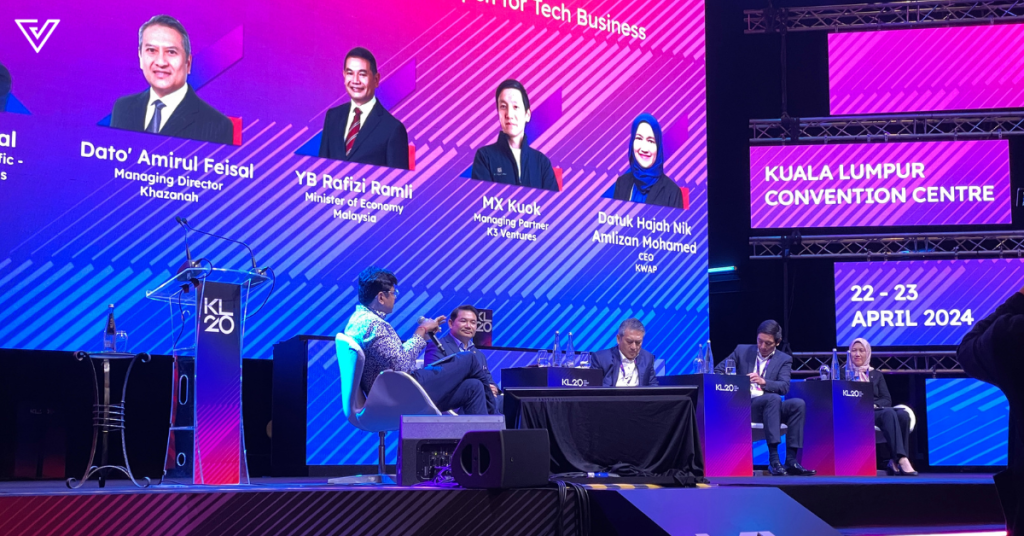
Of course, Rafizi himself understands that entrepreneurship is difficult, which may be why it’s the path less taken.
“If I have the opportunity to relive the life of a startup founder, having gone through it the first time, I wouldn’t do it,” he admitted. “It’s actually very difficult.”
He pointed out that being a startup founder in Malaysia in the past 10 to 15 years was doubly difficult compared to anywhere else, partly because the ecosystem of the yesteryears was geared towards bigger companies with unicorn potential, rather than early-stage startups.
However, the minister pointed out that it takes a robust ecosystem with a strong and wide foundation in order to sustainably produce unicorns.
And to get that to happen, Malaysians must change the way we view success and risk.
Growing a hunger for risk
Rafizi said that the ability of the government to change our society’s success model and risk aversion is one of his biggest concerns.
“Malaysia as a country has built our economy on large scale sectors. Plantations, oil and gas, electronics, so much so that for the last 50 years, we look at employment in big industries as an affirmation of success,” he explained.
The minister continued, “If you were to strike it on your own here, it’s very difficult. It’s difficult because it’s risky, and it becomes a vicious cycle, precisely because it’s risky, the capital wouldn’t come in. The whole ecosystem does not support it.”
And he believes that it’s our preoccupation with stability that is the root of that challenge. As such, it’s imperative to change society’s appetite for risk, success, and innovation.
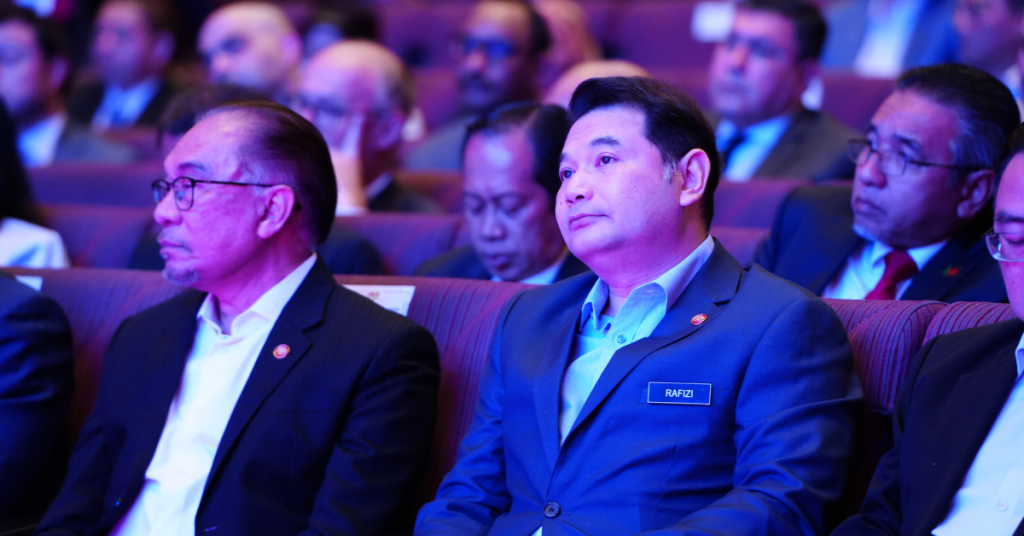
While growing this risk appetite might come organically as more founders come in and find success, the government is keen on catalysing the change in mindsets, so that the country can achieve the ambition of having a top 20 startup hub by 2030.
“Ultimately, we have to change the fibre of society,” he said. “And that goes into the education system, into the government’s focus. And that’s why we need to send the signal to society that the government takes risks seriously.”
De-risking through continuity of capital
Continuing that line of thinking, Khazanah’s Dato Amirul Feisal shared, “One thing that might reduce the risk is the availability and the continuity of capital from early all the way into the late stage.”
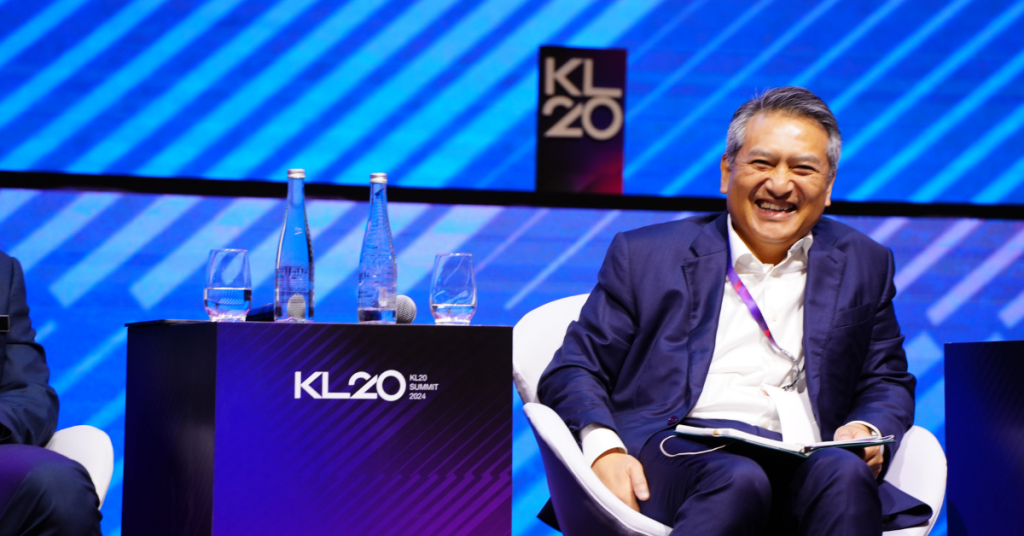
And that’s where institutions like Khazanah come in. He believes that given their mandate and their reach, Khazanah is able to take bigger risks, welcoming partners that look at the whole ecosystem, ensuring that capital continues from venture generation up to Series A and further growth stages.
MX Kuok also chimed in on the conversation, believing that the continuity of capital can help create a culture of risk-taking in Malaysia.
“Because when they start up a company from zero to one, they know there’s a path and line of sight to the milestones they have to hit in order to graduate and continue to expand overseas, for example.”
And showcasing that path and its potential is what KL20 is about.
More failures, please
Something else that MX thinks is important is to create a culture that doesn’t punish failures.
He pointed out that the founders of huge companies like ByteDance and Meituan have all failed before.
“If we impose on capital allocators to be not forgiving but objective about the talent and business model, then we could actually be thoughtful in the way that the capital allocators rally behind people who are talented and willing to take risks, but were perhaps on the wrong side of the stick when it came to the timing,” he explained.
Essentially, failures should be something that’s celebrated and maybe even sought after by capital providers. And with that change in perspective, more people may become encouraged to venture into entrepreneurship, too.
Explore, not exploit
Sharing her wishlist for companies in Malaysia, Datuk Nik from KWAP stated that she hopes to see more explorative R&D being done.
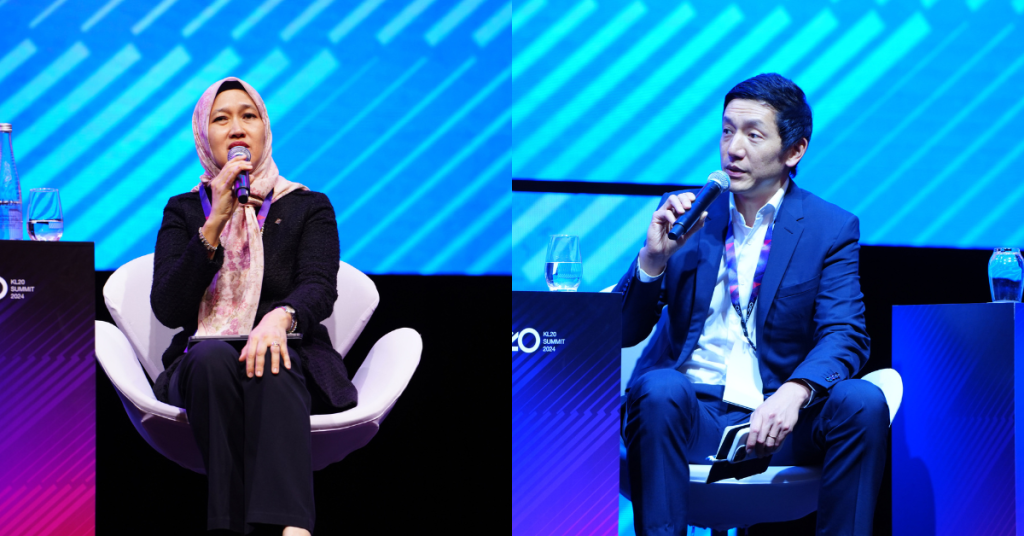
“I think Malaysian corporates do not spend enough on R&D,” she said. “If they do spend, it’s mainly on the exploitation of the current processes.”
That refers to research that’s focused on the improvement of what is already being done, rather than innovating something new entirely.
For KWAP, they’re doing the latter internally through an innovation lab that is set to carry out more exploration.
But again, focusing on explorative R&D rather than exploitative R&D may involve more risks, as it’s contingent on trying new things. But as Datuk Nik put it, that’s what it’ll take to level up.
The vision of success
Earlier, Rafizi had mentioned changing society’s success model. So, what does success look like in the future, once we implement the above insights?
Aside from the usual metrics and numbers, the minister shared that he hopes to see more early success stories.
“And when I say early success stories, it’s not necessarily just Malaysian-grown startups making it big, either surpassing Series C, going to more than US$1 billion-US$2 billion valuations,” he elaborated. “But I want to see a confluence of tech talents around the world here.”
The other bit is having more companies ready to go for listing locally.
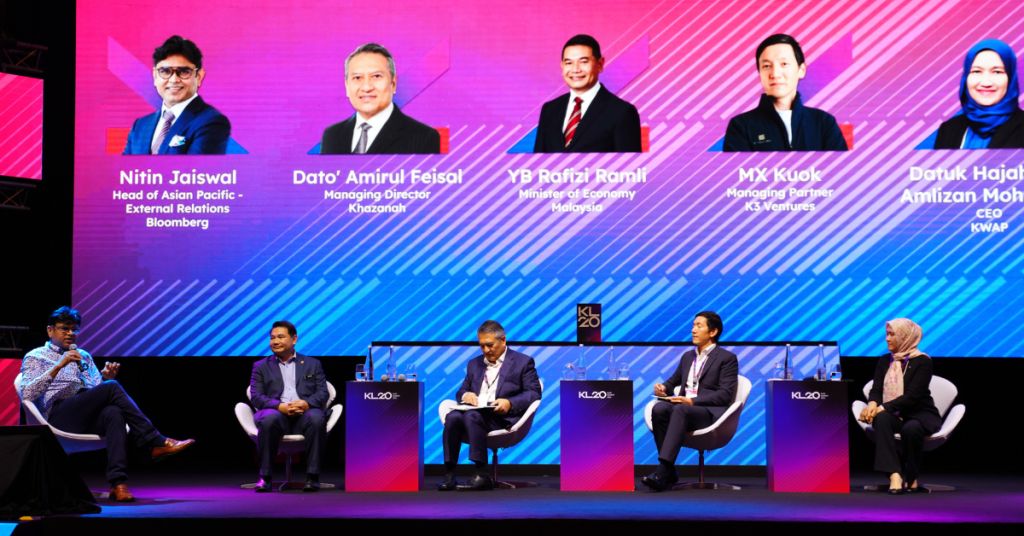
“If we compare our Bursa market with some others, our tech weightage is very low,” he said. “What a pity. Because this is a country that is recognised globally as one of the most important semiconductor players in the world.”
With more IPO-ready companies in Malaysia, the government will be able to focus more on regulation and the ecosystem and less on funding and direct intervention. Basically, the ecosystem will be more self-sufficient.
To get to that future, we must begin by realising that risk-taking is crucial, and eliminate the fear that comes with failure. All this is easier said than done, but with the government leading the way by example, hopefully more Malaysians will be willing and able to make that leap of faith.
Also Read: How financial institutions & universities are reshaping their network through AI-native solutions
Featured Image Credit: KL20 Summit
Is your job at risk from AI? Nvidia’s CEO predicts the future of humans in the workplace

Disclaimer: Unless otherwise stated, opinions expressed below belong solely to the author.
In the latest episode of CBS’ 60 Minutes, Bill Whitaker spends time with and interviews the superstar CEO of the AI era, Jensen Huang of Nvidia, who showcased the capabilities of artificial intelligence (AI) today and gave us hints about its future.
Among them, he weighed in on the topic that most people are concerned about: will AI make us all jobless?
“I’ve never seen one company…
…that had earnings increase and not hire more people”, said the Nvidia founder in response to the question about the impact of AI on regular workers. Good news, then! (right?)
However, when pressed on the topic of some jobs succumbing to intelligent automation, he appeared to silently agree, while qualifying his response with the following:
“I believe that you still want humans in the loop, because we have good judgement, because there are circumstances that machines are just not going to understand.”
So, your job may, after all, be at risk of succumbing to thinking computers, but there should still be a place for you in the workforce.
The age of fundamental disruption
Technology making people redundant isn’t anything new, of course. We’ve seen it play out time and time again since the dawn of the industrial revolution. Human anxiety about being replaced, rendered jobless and destitute aren’t new either.
200 years ago, Luddites were trying to sabotage steam-powered cotton looms which they believed to be a mortal threat to their livelihoods.

Advancing automation of work nearly eradicated employment in agriculture, where most people used to work for centuries.
But do we find ourselves longing for the plough today? Machines have made our labour more productive, safer, and ultimately, better paid.
They saved us from toiling away in the fields or mines, risking our lives and good health, opening up opportunities for intellectual employment in air-conditioned offices or, these days, even completely remote work from home.
On the basis of our past experiences, we shouldn’t fear yet another round of automation. Just look how much it has given us.
However, AI is different in that it challenges not only our employment but also our human identity. It’s no longer about machines taking over certain difficult tasks, but replacing us altogether.
If a thinking robot can work like a human and think like a human, but never gets tired and is not swayed by irrational desires, what do we need humans for?
On that subject, Jensen Huang appears to be a humanist, believing that we possess certain fundamental qualities that AI will not be able to accurately replicate or understand, simply because a machine can never be one of us or grasp what it is like to be a person.
The jury is still out on that one, and although the current generation of, however impressive, Large Language Models is excellent only at mimicking human behaviour rather than actually independent thought, there’s no saying what the next stage in AI’s development may bring.
How to stay useful?
Since human-level intelligence is still some distance away, the primary concern today is avoiding being replaced by something like ChatGPT. And there appear to be two avenues to follow to achieve that.
One of them is presented in this clever advertising banner by a Belgian employment company:

Yes, for all the advances in automation, humans are still better suited for many manual jobs, which often pay very well these days. ChatGPT will not take your place as a construction worker, plumber or electrician.
That said, this recommendation makes sense only for younger people who are planning their careers. Realistically, most 40- to 50-year-old office workers won’t reskill themselves to become professional carpenters or welders.
This is where Nvidia’s CEO gave us a hint—be the human that can’t be replaced by a chatbot.
Curious, creative, critical thinker. Level up intellectually to contribute in ways that can’t be mimicked by a large model trained on billions of data entries that form predictable patterns.
Original thought, communication skills, strategy, ability to work in or, better still, lead a team are all the qualities that AI does not possess and may never master well enough to replace us.
At the end of the day, we created it to help us, and without us, it has no goals of its own to pursue.
This is what Jensen Huang meant when he said certain things are beyond AI’s understanding. And if you want to stay employed, they shouldn’t be beyond yours.
Featured Image Credit: 60 Minutes
Despite growing demand for flexibility, most S’pore firms still want staff to be in office

A recent survey by Reeracoen Singapore showed that most companies are sticking to traditional office-based work policies despite the growing global demand for flexible work arrangements (FWAs).
The survey data showed that 56 per cent of the companies in Singapore maintain a 100 per cent office-based work policy, with only 7 per cent offering fully flexible or remote working options.
The findings suggest that while some companies embrace new work models, the majority still remain hesitant.
Furthermore, despite almost 40 per cent of firms in Singapore implementing hybrid working arrangements, there is an apparent gap when comparing the speed of policy adoption to the global push for more flexibility at work.
89% of employees prefer hybrid or fully remote work arrangements
Several studies and surveys have also shown a high demand for bosses to offer flexible work modes.
A recent study by Morgan Mckinley found that an overwhelming 89 per cent of employees in Singapore prefer working in a hybrid or fully remote arrangement. Another survey conducted by Randstad Singapore showed that almost half of the country’s workforce is inclined to leave their jobs if they are required to come to the office more often.
This shows a stark disconnect between employers and employees in the city-state and that companies that choose to stick to office-based work arrangements will have trouble attracting and retaining talent in the long term.
New legislation to support workers’ need for greater flexibility
In December, the new tripartite guidelines for FWA are set to take effect. The guidelines, which mandate employers to consider formal requests for flexible work arrangements, suggest that the Singapore government supports and acknowledges workers’ need for greater flexibility.
Although the business landscape is gradually evolving to embrace more flexible and inclusive working arrangements, employers who are slow to implement new workplace policies can potentially hinder their growth within the ever-changing global job market.
Featured Image Credit: MoneyTalksNews/FlexJobs
Also Read: Will the new FWA guidelines truly support employees? Here’s our analysis and why we think so
Homegrown firm Anywheel gets approval to expand fleet size to 35K shared bicycles in S’pore
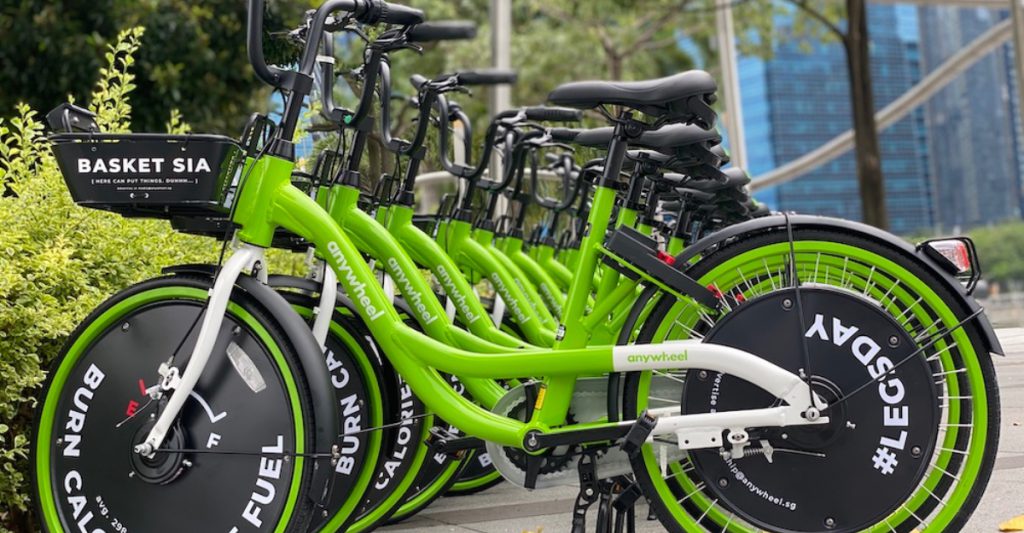
Singapore’s Land Transport Authority has allowed homegrown bike-sharing company Anywheel to add another 5,000 units to its fleet, expanding its total fleet size to 35,000 shared bicycles.
The decision comes on heels of Anywheel’s robust business growth in recent years—as of February 2024, the bike-sharing firm boasts over 1.3 million users, seeing month-on-month growth in ridership for the past four years.
The addition of these 5,000 units extends Anywheel’s lead as Singapore’s largest bike-sharing company in terms of fleet size, years after the first wave’s dominant players fizzled.
At its peak, nine bike-sharing companies were operating in Singapore, offering a total of more than 200,000 shared bicycles, but the bike-sharing landscape quickly saw a downturn with indiscriminate parking and vandalism becoming rampant.
It was equally as messy on the operators’ end—several companies made some dramatic exits, from bankruptcies to abandoned operations.
Apart from Anywheel, the only other bike-sharing operator active in the Singapore market today is Alibaba-backed HelloRide, with a fleet size of 10,000 shared bicycles.
Anywheel has been net profitable from February 2023
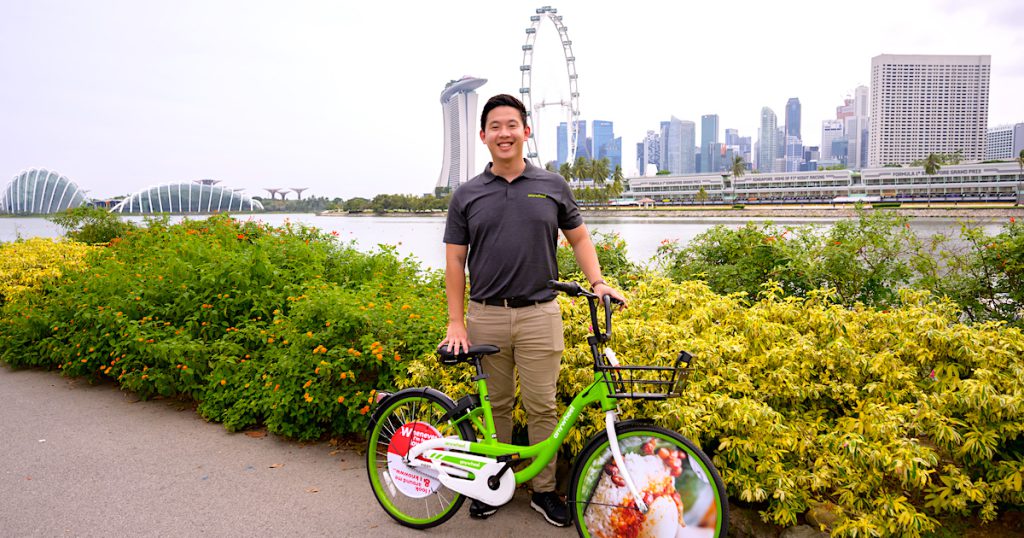
Founded in 2017 by Htay Aung, Anywheel provides first-mile and last-mile transportation options. In an interview with Tech in Asia back in February, Aung said that the company has been “net profitable since February 2023”.
He added that the company has been bootstrapped from the start, allowing it to “grow organically”. However, the firm plans to fundraise in the middle of this year to help with its expansion plans.
Currently, Anywheel operates in Singapore and select cities in Thailand, but by Q3 2024, it aims to launch in a third Southeast Asian country, while also assessing a fourth market outside the region.
Its next bike roll out will feature new user-centric features, including smart locks, a response to customer worries about theft risks. With the smart lock, users can lock and unlock bikes through the Anywheel app, eliminating the need for manual locks.
Apart from its bike-sharing services, where it charges S$1 for a 30-minute ride, the firm also generates revenue from advertising—a major revenue source for overseas bike-sharing players. Anywheel’s ad rates range from S$15 to S$100 per bike per month.
Featured Image Credit: Anywheel
Also Read: Bike-sharing firm SG Bike ceases operations in S’pore, users to be transferred to Anywheel
What a day at this lux hospitality-centric coworking space in Mont Kiara was like

Featuring a premium Mont Kiara address, Colony’s latest and largest branch in The MET Corporate Towers goes the extra mile to bring patrons that luxurious touch the coworking brand is known for.
A coworking and event space company in Malaysia, Colony is also present in KLCC, Star Boulevard, Eco City, and Mutiara Damansara. The hospitality-centric brand offers a range of solutions such as private offices, serviced offices, virtual offices, enterprise offices, hot desking, and meeting rooms.
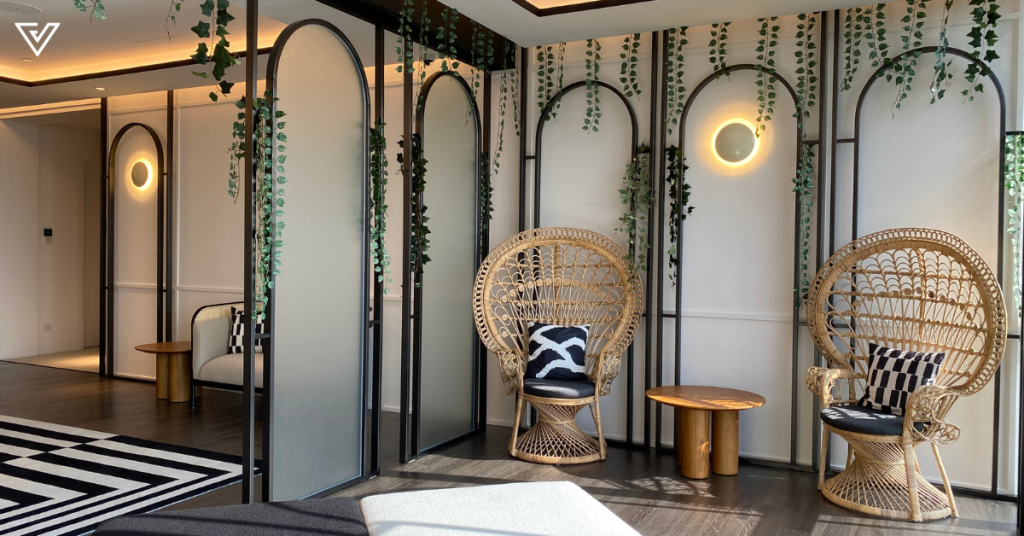
In our recent visit to its new Mont Kiara location, we made an office out of their Luxe Suite for the day. The room feels like a part of a hotel suite with a plush green sofa, a mini fridge, storage cabinets, two smart desks, a bar counter that seats two, and a Google Home.
Waiting for us in the room were two pitchers of lemon-infused water, as well as snacks ranging from gummy candy to Ruffles chips.

The fridge was stocked with much-needed cans of coffee and juice too. We were told that they did furnish it a little more for us, but that the room does usually come with some snacks, albeit lesser than what we got.
Aside from spaciousness, one of the biggest pulls of our suite was the fact that it has floor-to-ceiling windows looking out into the neighbourhood, providing us with ample sunlight. But fear not, there are blinds too if it gets too hot.
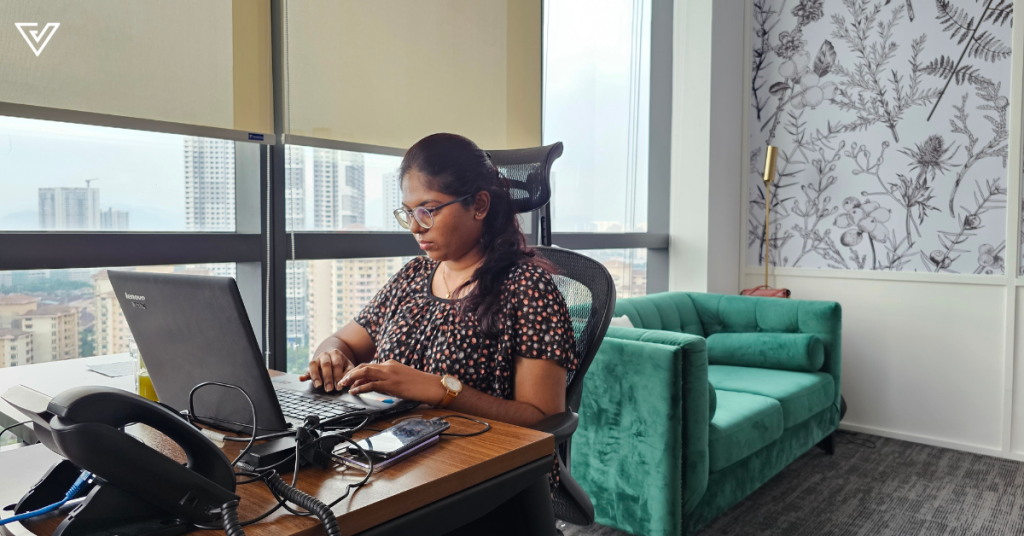
Aesthetics
As they say, first impressions can be lasting, and here, that lasting impression is made at the concierge. Immediately, the space evokes a luxe, swanky ambiance, akin to the check-in desk at a hotel.

Although our room was quite vibrant with its jade sofa and mustard chairs, the common areas are kept minimalistic with a black-and-white palate and geometric patterns, though the addition of rattan and faux foliage keeps things warm and welcoming.
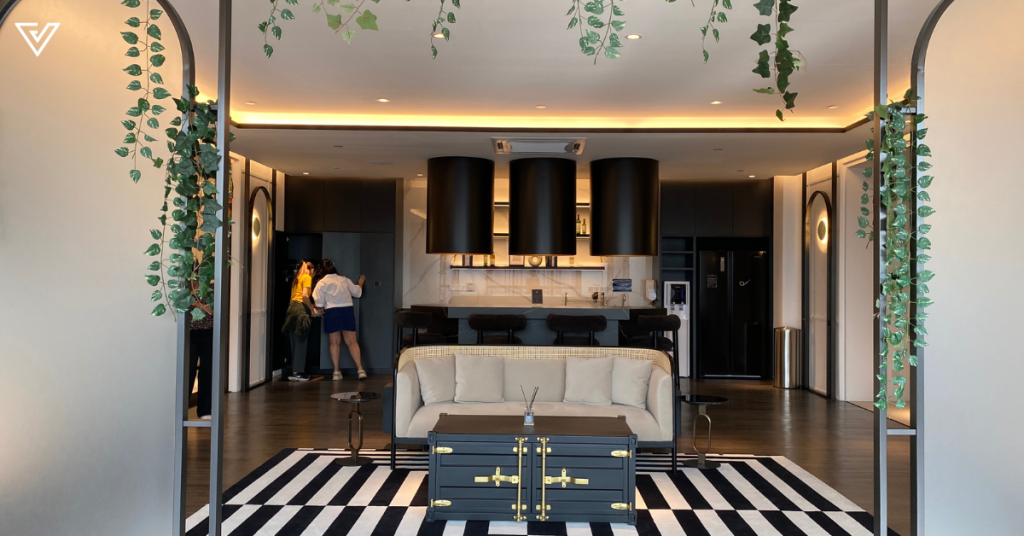
The common area comprises an array of seating, including some couches, wingback rattan chairs, and ottomans. Then there’s the kitchen with a double-door fridge, a water dispenser with cool and hot water, sink, and a pantry area stocked with plates, cups, bowls, and more.
There’s also an island that seats four. We chose to have our lunch here, but you can always opt to eat in your room. The only thing is you might lose out on socialisation opportunities, which is a key part of coworking spaces.
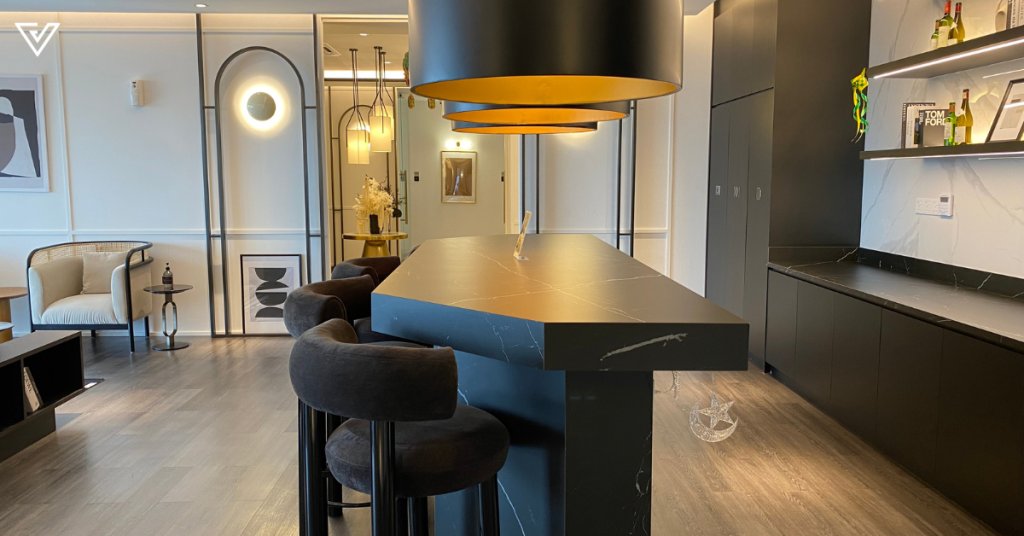
On that note, we were told that guests could also work in the common area via hot desking solutions. But in our opinion, the space doesn’t look too conducive for working on a laptop, since the coffee tables are a little low.
On the bright side, there are one-person private rooms available too if you need a proper desk.
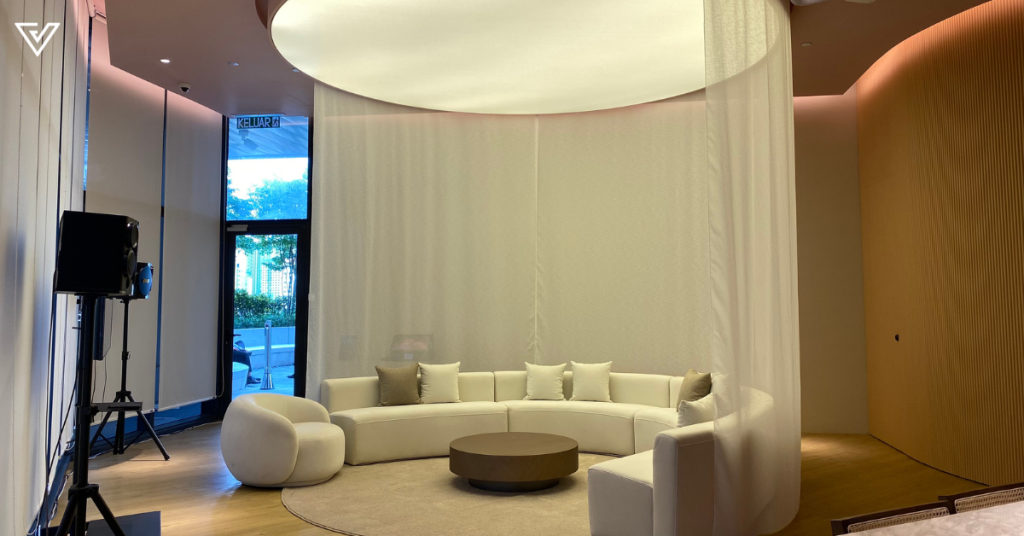
In terms of facilities, there’s a variety of event spaces and meeting rooms available. There are a couple of standard meeting rooms on the 10th floor, but one level down on the 9th, there are The Boardroom and The Sun Room for more unique meeting spaces.
Fitting up to 30 pax, The Boardroom features a round table with a sand-filled centre and stone décor. As per the name, this seems catered to business-focused events or product launches. Meanwhile, The Sun Room has a more relaxed vibe with plush sofas, which we were told were ideal for intimate weddings, bridal or hen parties, and more.
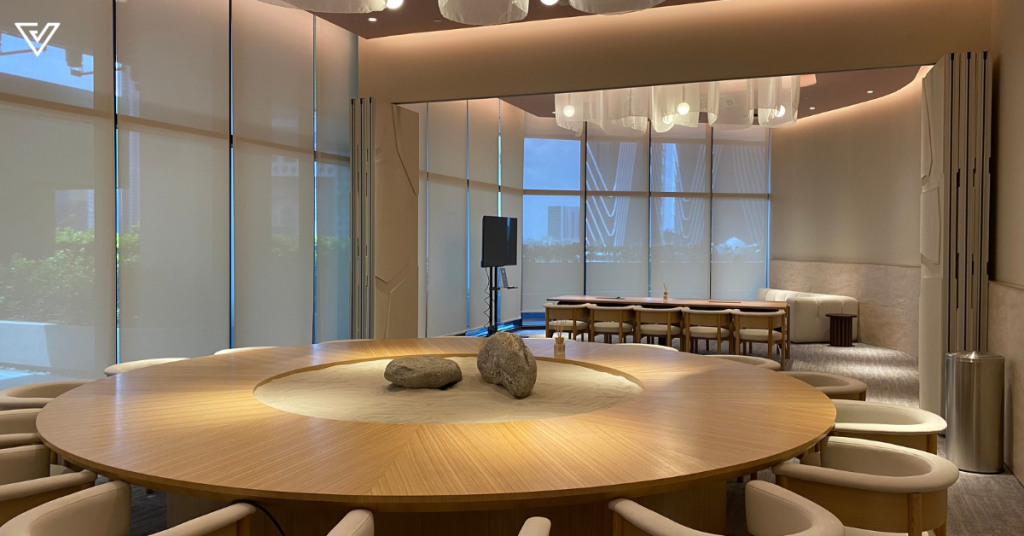
For those looking to host bigger events, there’s The Lounge, The Glass Box, as well as the Rooftop Terrace.
The Lounge, which fits up to 40 pax, is also suitable for intimate events. It comprises a bar and dining area as well as a hall with modular furniture so clients can switch up the seating as they wish.
From what we know, The design inspiration of the spaces aims to invoke tranquility and zen with the sandy colours, wooden and stone decor, and floaty white canvas as ceiling drapes or curtains (symbolising clouds).
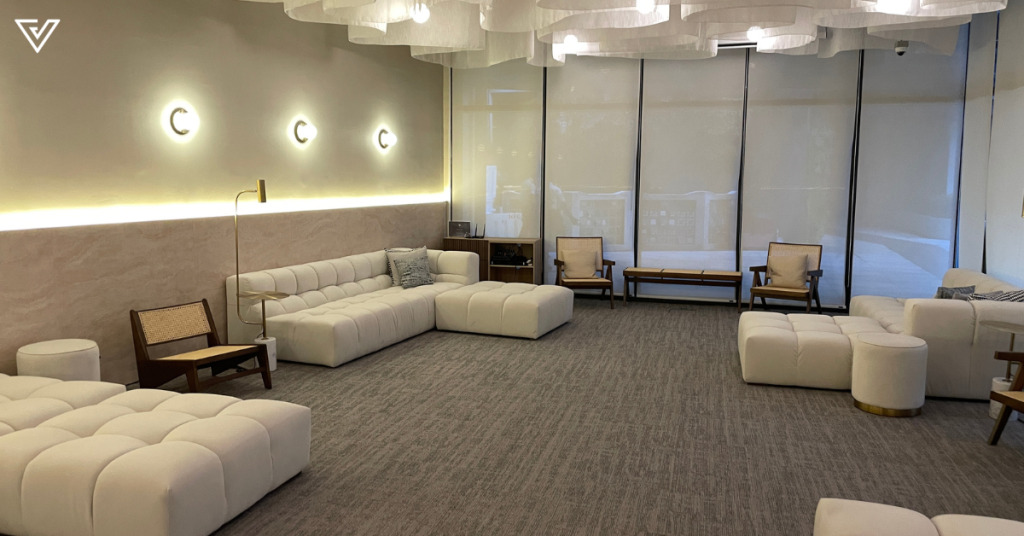
Meanwhile, The Glass Box is the largest event space here, able to accommodate 450 pax with its sprawling 5,400 sq ft space. This makes it optimal for big functions like parties, corporate events, weddings, and the like.
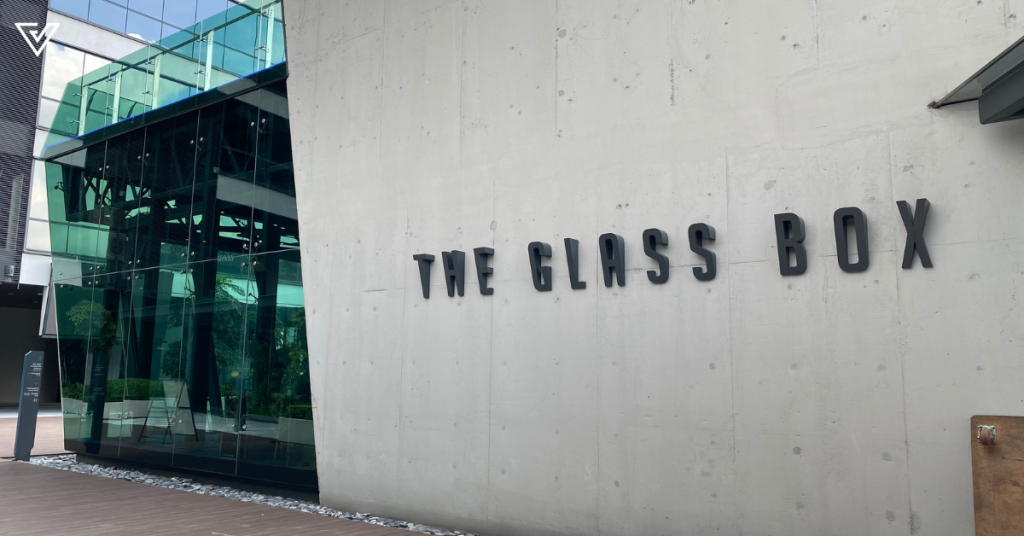
And The Rooftop Terrace is, of course, an open space. Fitting up to 250 pax, it’s an ideal spot for more relaxed and casual events.
Amenities
One thing about Colony is that, unlike its no-frills sister brand Jerry, it’s all about the frills.
Frills include things like the stationery corner. This was a nice and helpful touch, with not just your usual office supply such as hole punchers and staplers, but also cute, sparkly washi tape.
There’s also an area with a printer, laminator, binding machine, and a paper shredder. To print something, though, you need to email it to the concierge. The staff will then print out the necessary materials.

While the service is appreciable, this exchange of data does pose an issue of security, especially for corporates with strict protocols that prohibit sharing private details. With this in mind, it would be good if guests have a way of printing their own materials in the future, within reasonable limits.
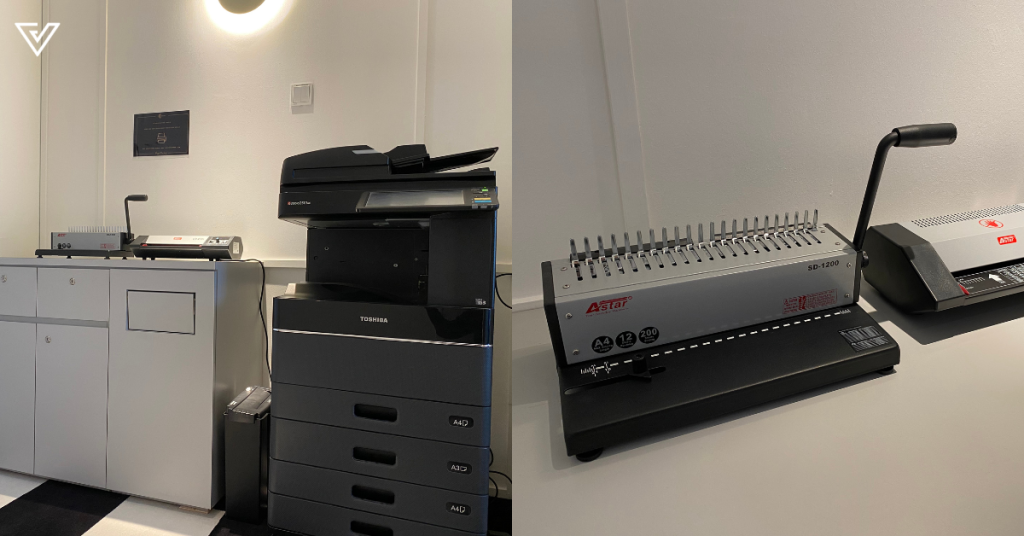
Aside from that, the staff unfortunately did not notice the body of my email requesting two copies in colour, and only printed one black-and-white copy. If you have specific instructions, it might be better to tell them in person.
There are smaller frills, too, such as the condiments stocked in the kitchen pantry, the extra jugs of water in the fridge, a provided marker and tape to label your food in the fridge, and the toiletries in the bathroom.
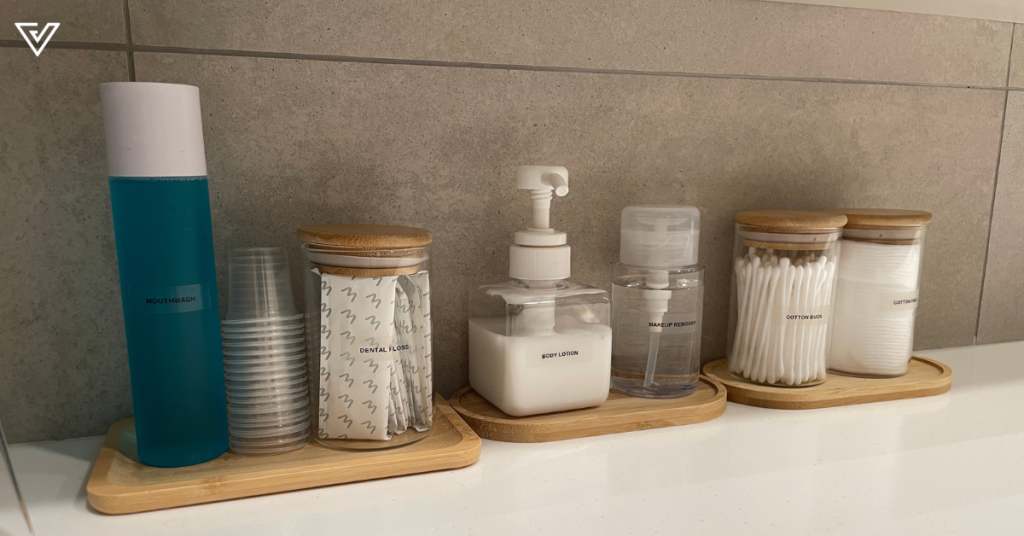
Audience
All in all, we had a rather productive day in the suite. The smart tables are particularly nice, providing some ergonomic options as well as a cool wireless charging dock. While we didn’t make use of the lush couch, it was nice having it there just in case we did need it for a break.
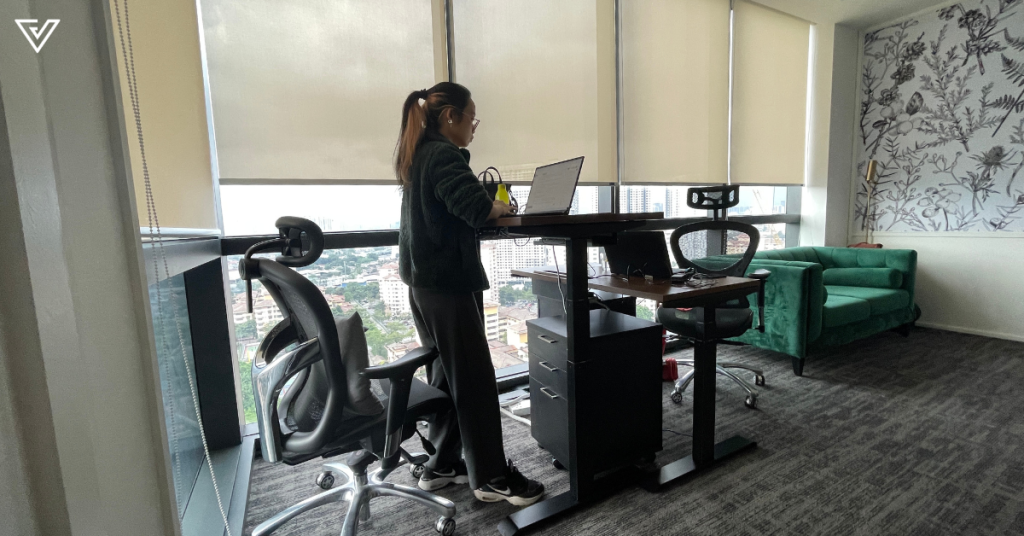
There aren’t a lot of food options in walking distance from The Met, though, so we had to order some delivery. It’s not a bad thing, but I can imagine this might become unsustainable if it’s your day-to-day, unless you bring food from home.
Do note that the operation hours for the space are 9AM to 5:30PM, which might not work for everyone, especially those with odd working hours such as entrepreneurs or companies working with international partners.
The Colony team checked in on us before clocking out, and when we told them we needed a bit more time to finish up, they were accommodating. In any case though, it’s not recommended to stay late as the AC will automatically be turned off and it could get stuffy.
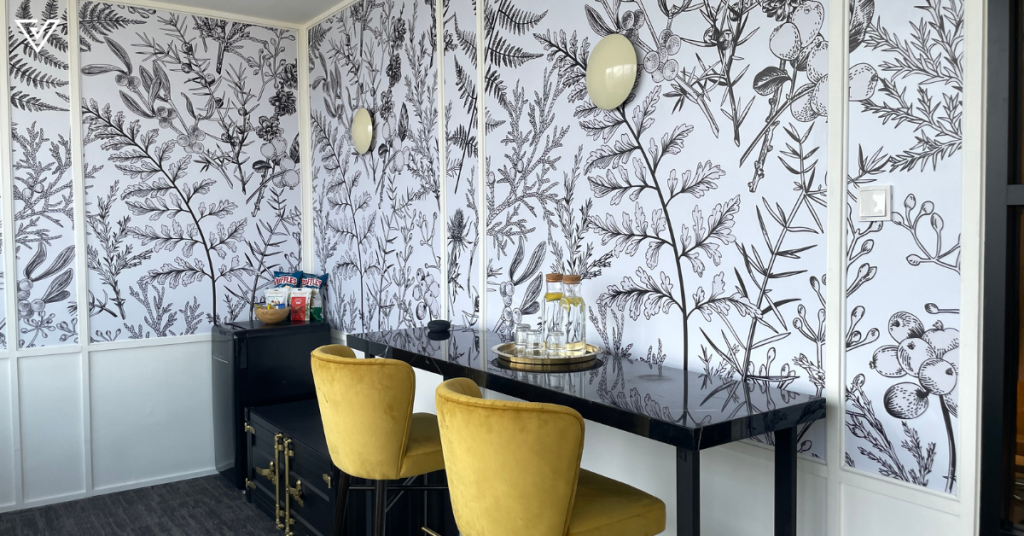
Colony @ The Met’s coworking space is especially fitting for those looking for private offices for small to medium-sized teams that want a premium business address and setting. The pricing for private offices starts at RM2,390, but plans can be customised based on the client’s needs.

Other plans include the Prepaid Time Pass, which is RM338+ for 100 hours (roughly 11 to 12 days if you work regular hours). For hot desking, it’s RM410 per month.
All things considered, for the average worker or digital nomad, I do think Colony @ The Met is a little overkill. But if you’re looking for a luxe workplace complete with hospitable service, look no further than here.
And of course, if you need a gorgeous event space, Colony @ The Met is ready to host.
- Learn more about Colony @ The Met here.
- Read other articles we’ve written about coworking spaces here.
Also Read: How financial institutions & universities are reshaping their network through AI-native solutions
All Image Credits: Vulcan Post